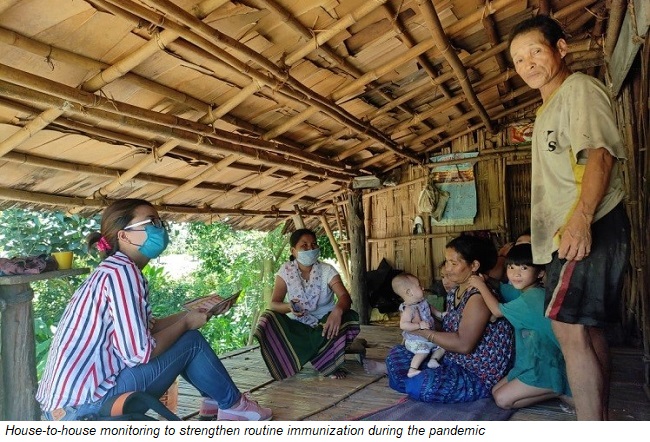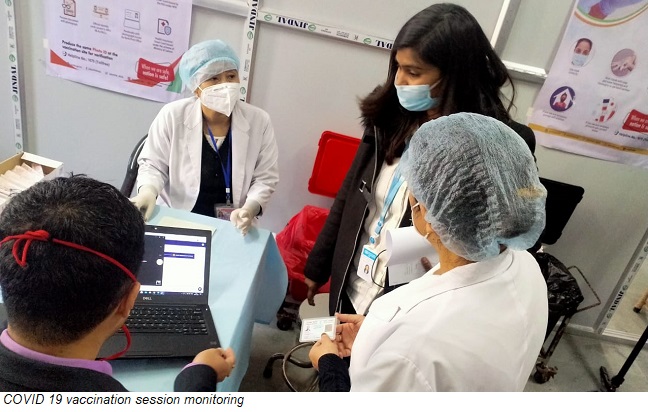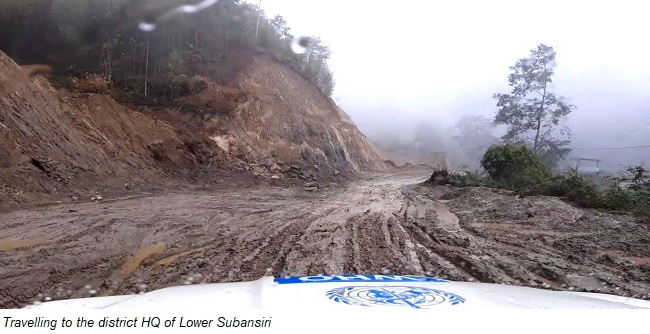Women are leading the charge against the COVID pandemic across India, and among these frontline champions is the six-member all-women WHO field team in Arunachal Pradesh, which is the largest state in the north-east of India with a population of 1.6 million spread across 26 hard-to-reach districts.

The lack of robust land, air, internet and mobile network connectivity makes access to healthcare a challenge in the state in the best of times. With the COVID-19 pandemic stressing health systems across the world, including in Arunachal Pradesh, the WHO-National Public Health Surveillance Project (NPSP) has been working closely with state health officials to ensure COVID-related and routine services reached the community.
Over the past year, NPSP teams have provided technical support and assisted policy and decision-making at the state and district levels by assisting capacity building of COVID warriors, developing Standard Operating Procedures (SoPs), providing guidance notes on government initiatives, tracking progress, and providing supportive supervision for mid-course correction.

“WHO Surveillance team were part of State Task Force in the fight against COVID-19 in Arunachal Pradesh and have played an important role in surveillance and containment activities, and providing the latest evidence related to testing, tracking and treatment of COVID-19. Also, the team supported improving immunization coverage during the pandemic, and we are hopeful to achieve universal immunization coverage soon,” said P. Parthiban, IAS Secretary Health, Arunachal Pradesh.
Arunachal Pradesh was one of the early adopters of implementing a lockdown to contain cases, with the state imposing a lockdown on 17 March 2020, a week before the national lockdown on 25 March. It was also one of very few states to provide free testing at all checkpoints to prevent the transmission of the virus.
“Arunachal Pradesh could contain the spread of the pandemic as a result of the untiring efforts of all health workers, frontline workers, administrative officials and the WHO team. WHO’s constant support in combating the COVID pandemic, developing strategies to overcome this enormous challenge at each step of the way, and providing unceasing technical support is highly appreciated. They have played key role in capacity building and providing operational support,” said C. R. Khampa, mission director, National Health Mission.

The WHO field team has also assisted in strengthening routine immunization by reaching remote districts during the pandemic. A customized routine immunization strengthening plan was developed with WHO-NPSP team in Arunachal Pradesh for the very first time, where 6 Rapid Response Teams members and 3 SMOs were deployed across the state. These teams travelled through extremely difficult terrain in harsh weather conditions to reach the remotest areas.
Microplanning helped increase outreach sessions by 40% and reduce hospital sessions by 22%. House-to-house outreach and monitoring in remote villages resulted in full Immunization increasing by 4% (from 69% to 73%) in the pandemic year.
“The WHO field team has provided intensive support in strengthening of RI, preparing micro-plans and planning session sites to ensure equitable delivery of immunization services, and now COVID vaccination. They have been extremely supportive in building capacity of the vaccinating teams, setting up COVID vaccination session sites and supportive supervision visits to ensure quality rollout of COVID vaccine. Their valuable inputs in regular reviews have been instrumental in improving both coverage of COVID vaccination and addressing quality issues found during supportive supervision visits,” said Dr Dimong Padung, SEPIO Arunachal Pradesh.
